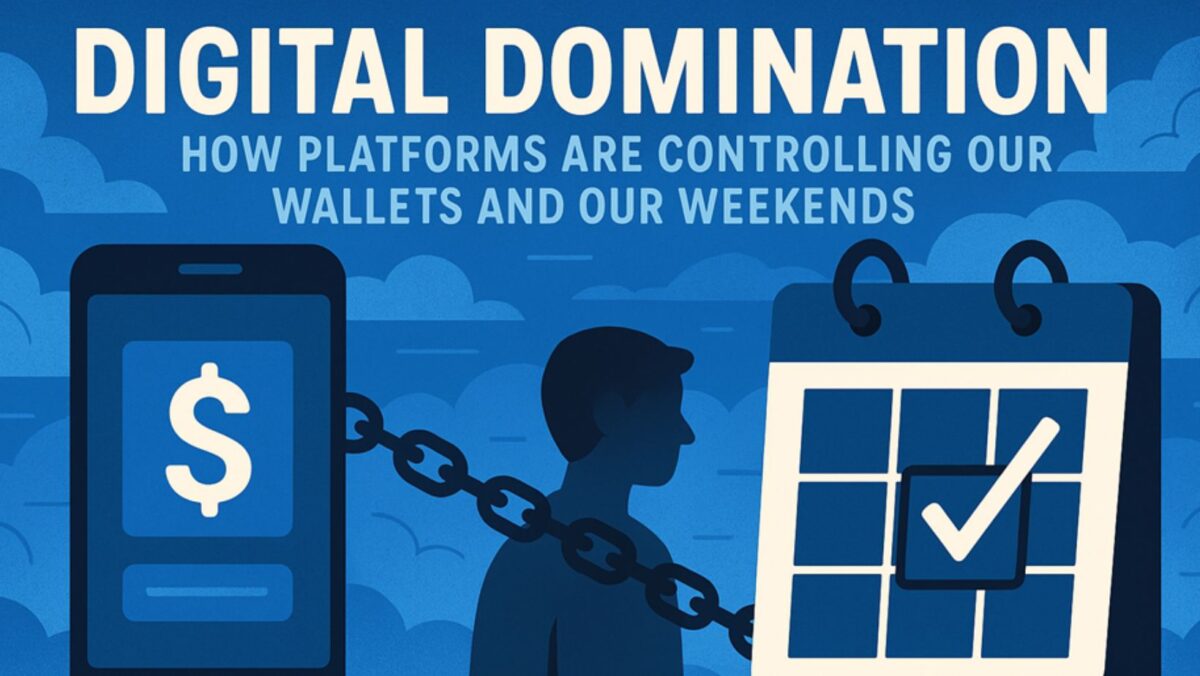In 2025, an estimated 5.35 billion individuals—over 66% of the earth’s inhabitants—are active internet users. That’s not just a statistic. That’s indicative of an average individual who spends hours upon hours interacting daily with digital platforms influencing everything from purchasing apps and social networking to banking and digital games. Digital platforms have become ubiquitous in our lives.
Consider how easily we can now stream movies, order groceries, or even place bets through a smartphone. Apps like download 1xbet have made digital convenience seamless. But what’s the cost of this comfort? Slowly but surely, platforms are gaining control over how we use our time—and our money.
The Economics of Convenience
One of the biggest drivers of digital domination is convenience. According to a 2024 report by Statista, over 72% of consumers admit to shopping online at least once a week. The main reason? It saves time. Platforms like Amazon, Shopee, and TikTok Shop allow users to purchase almost anything within seconds, aided by algorithms that suggest what they “might” want next.
This creates what economists call a frictionless economy—an environment where spending becomes almost too easy. And when spending is easy, consumers tend to overspend. A 2023 survey by Credit Karma revealed that 48% of Gen Z consumers have made purchases they later regretted because of targeted digital ads.
Leisure on Demand, or Just More Screen Time?
Leisure, once defined by rest or hobbies, has transformed into on-demand entertainment. Netflix, YouTube, Spotify, mobile games—each platform is engineered to keep you engaged. And they’re incredibly effective. The average global user now spends 2 hours and 27 minutes daily on social media alone.

But this isn’t just about watching videos or playing games. It’s about how platforms capitalize on your attention. Through recommendation engines and autoplay features, they encourage passive consumption. And they succeed—largely because they’re built around understanding your habits better than you do.
This ties into the future of digital interaction, where AI-driven personalization and even voice-controlled features are making it easier than ever to stay “plugged in” without lifting a finger.
How Digital Platforms Influence Financial Behavior
Platforms don’t just control how we spend—they’re beginning to redefine our relationship with money itself.
Take budgeting apps, e-wallets like PayPal and GCash, or micro-investing platforms like Acorns. These tools help manage money more efficiently—but they also collect vast amounts of data about how we earn, save, and spend. That data is then used to personalize experiences, sometimes nudging users toward specific financial decisions.
Engagement or Exploitation?
In the name of engagement, digital platforms have mastered the art of creating digital routines that blend work, play, and spending. But what’s the tipping point between engagement and exploitation?
A study published in Digital Economy and Society discusses the effects of engaging with digital platforms on consumer autonomy. It reveals that prolonged interaction can gradually shift decision-making power from users to platforms. Algorithms learn preferences, test reactions, and fine-tune their recommendations—often prioritizing monetization over well-being.

Let’s not forget about in-app purchases, which generated over $150 billion in global revenue in 2023. These aren’t just seen in games, but across wellness apps, dating platforms, and productivity tools. Microtransactions may seem small, but they add up fast—especially when behavioral psychology is used to encourage “just one more” purchase.
Who’s Really in Control?
The question we need to ask is simple: Are we using digital platforms, or are they using us?
While they offer unmatched convenience and access to services, digital platforms are also becoming more sophisticated in shaping behavior, influencing emotions, and driving purchases. And as more platforms move toward AI-powered interfaces, the divide between user choice and algorithmic suggestion will only grow.
So what can we do?
Smart Habits in a Platform-Driven World
Here are practical ways to regain control:
| Habit | Why It Helps |
| Track Your Screen Time | Awareness is the first step toward reducing digital dependency. |
| Use Budgeting Tools | They can help flag unnecessary recurring subscriptions or micro-spending. |
| Turn Off Personalized Ads | This reduces impulsive purchases influenced by targeted suggestions. |
| Schedule Offline Time | Designating screen-free hours boosts mental clarity and prevents passive scrolling. |
| Educate Yourself on Data Privacy | Knowing how platforms use your data helps you make informed choices. |

